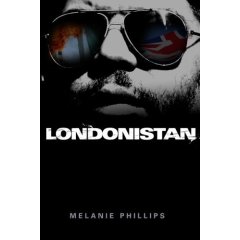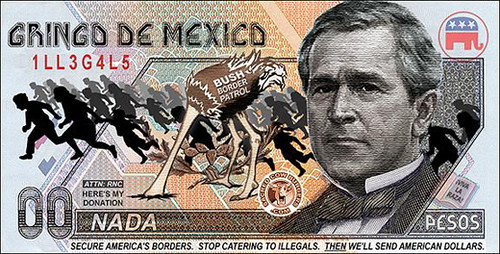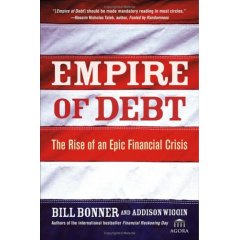Marchers shout for the destruction of a lawfully constituted, democratic country: Israel. They chant, "Zionism, terrorism" and "We are all Hezbollah." The local population is passive, mute, even sympathetic.One of the world's most radical Islamist organizations, Hizb ut-Tahrir, which is banned in many countries -- including Muslim countries -- where it is considered a major threat, has its headquarters here and conducts activities on many university campuses. Hizb ut-Tahrir agitates for the revival of the Muslim caliphate, abolished at the end of the Ottoman Empire, and proclaims that Muslims may live only in a Muslim state governed by Sharia law.Islamist demagogues call for murder and insurrection. Omar Bakri Mohammed claims the political leader of the country where he lives is "a legitimate target; if anyone gets the opportunity to assassinate him, I don't think they should save it. It is our Islamic duty and we will celebrate his death." Not only does he continue living freely in the country whose downfall he urges, but he, his wife, and their children are supported by that country's social welfare payments. "Islam allows me to take the benefit the system offers," he says.A new Muslim center with room for 10,000 worshipers opens here. Among those leading prayers at its opening is Sheikh Abd Al-Rahman al-Sudais, who has called for violence against Christians, Hindus, and Americans. He has called Jews "calf-worshipers, propher-murderers, prophecy-deniers ... the scum of the human race whom Allah cursed and turned into apes and pigs. ... These are the Jews, a continuous lineage of meanness, cunning, obstinacy, tyranny, licentiousness, evil, and corruption."Where are we? A terrorist-supporting lunatic state in the Middle East? No. We are in Britain, and its capital London, which Melanie Phillips says in her just-published book Londonistan "has become a major global center of Islamist extremism -- the economic and spiritual hub of a production and distribution network for the most radicalized form of Islamic thinking, which not only pumps out an unremitting ideology of hatred for the West but actively recruits soldiers and raises funds for the worldwide terrorist jihad."
On July 7, 2005, three individuals on London Underground trains and another on a bus detonated themselves and killed more than 50 people going about their daily lives. "As the gruesome task began of collecting the body parts from the wrecked trains and bus, and as the wounded emerged dazed and weeping from the underground tunnels, a shocked Britain had to confront the terrible fact that the appalling phenomenon of suicide bombing had arrived on British soil," Phillips says. And, as it soon became known, the suicide bombers were British Muslims.
The evidence had been there for anyone willing to see it for years. Britain had welcomed and even supported extremist Islamic organizations. "Radicals such as Abu Qatada, Omar Bakri Mohammed, Abu Hamza and Mohammed al-Massari were allowed to preach incitement to violence, raise money and recruit members for the jihad," Phillips says. "An astonishing procession of UK-based terrorists turned out to have been responsible for attacks upon America, Israel and many other countries."
Neither the British government nor most of the British people have shown any concern over the encroachment of radical Islamism into British public life. "The Labour mayor of London, Ken Livingstone, has embraced and defended Sheikh Yusuf al-Qaradawi, the prominent Islamist cleric who says it is a duty for Muslims to turn themselves into human bombs in Israel and Iraq," Phillips says. "Meanwhile George Galloway, the supporter of Saddam Hussein, was elected to the British Parliament as the leader of a new political party that brings together the far left and radical Islamism -- the first such party in Europe. Yet there has been no groundswell to get rid of the popular Livingstone as London's mayor, nor has the Labour party disowned him; while Galloway is regarded as, at worst, a minor irritant or a pantomime villain."
Even after 9/11 and 7/7, the country is in deep denial about the danger from many of the Muslims and Muslim organizations in its midst. The media and intelligentsia are obsessed with avoiding any taint of "Islamophobia," a thought crime, trying to suppress any criticism of Islam and portraying anyone who talks about Islamist aggression as a bigot.
Most of the facts about the penetration of radical Islam into Britain have been published before -- although, assembled in a single source as they are in Londonistan, they have far greater impact than when discussed individually -- but Phillips has set for herself the goal of describing not just the outrages themselves, but the social and political conditions that have allowed them to thrive.
"Britain is currently locked into such a spiral of decadence, self-loathing and sentimentality that it is incapable of seeing that it is setting itself up for cultural immolation," she says.
Phillips, a London newspaper columnist and author of several previous books, is well known in the U.K. for her scathing criticisms of what she sees as her country's descent into crackpot multi-culturalism, left-wingers' contempt for its own history and traditions, and the debasement of its educational system. In Londonistan, she argues that the British have permitted their country to become a terrorist Petri dish through a combination of pathological trends.
Human rights legislation that the U.K. has signed onto is so skewed in favor of "asylum seekers," however bogus, that it effectively prevents the nation from defending itself. The British security establishment is dominated by mental habits acquired in fighting the last terrorist war, against the IRA, which was at heart a political conflict -- it never passed through the brain of even the most rabid IRA operative to establish Catholicism as the one and only religion in the U.K. The British take pride in being reasonable people, are famously given to compromise, and nowadays strongly secularist; the idea of anyone blowing themselves and others up for a religion is incomprehensible to most of them.
As a result, the British establishment can't unhook itself from the idea that Islamic radicals are motivated by economic and political goals, rather than absolutist religious doctrines that can never be satisfied until the country -- and the whole world, for that matter -- lives under the rule of the Crescent. British leaders are mesmerized by the fantasy that the solution is to endlessly show more tolerance and acceptance. Six months before the London bombings, the Metropolitan Police Commissioner, Sir Ian Blair, said, "There is nothing wrong with being an Islamic fundamentalist" and "Bridges will be built [between the police and the Muslim community]."
"The strategy," Phillips says, "is to win over the majority of British Muslims; so the police are bending over backwards to show sympathy for them and respect for their religion. In Nottingham, the police handed out green ribbons after the London bombings to express solidarity with Muslims, who, according to the chief constable, were on the receiving end of Islamophobic attacks. And guidelines for the Bedfordshire force say that when officers raid Muslim homes they should remove their shoes, not use dogs and not mount predawn raids because at that hour people might be 'spiritually busy.'"
Phillips cites the alliance between the British left and radical Islam (based, as far as the left is concerned, on the belief that anyone opposed to Western values and the United States is on their side) and the pathetic determination of the Church of England to abandon its own beliefs and traditions while rationalizing every kind of political and social radicalism. The Church is dominated by appeasers who see Islamic terrorism as "resistance" to supposed crimes by Israel and the United States. (Her chapter on the Church of England is titled, "On Their Knees Before Terror.")
Dislike of Jews and Israel is now widespread and socially acceptable in the U.K., Phillips says. It's fashionable to support Palestinians and excuse their terrorist tactics as morally equivalent to Israel's defending its citizens and its very existence. These attitudes numb the country against feeling any outrage at even the wildest and most paranoid anti-Semitic slurs by Muslim clerics.
A popular culture that has been degraded by the welfare state into self-centered apathy and indoctrinated by left-wing media like the BBC into rejecting any pride in traditional British values has also, she says, created a vacuum into which Islamism can easily flow, appealing to alienated young Muslims who've never been given any reason to identify with Britain.
Phillips makes a strong case, marshalling facts and documenting them. She writes fluently, other than overusing the somewhat obscure word "trope" (Merriam-Webster's: "a word or expression used in a figurative sense; figure of speech"). Londonistan is a compelling read; it should make a lot of people, especially British, uncomfortable and motivate them to change the mental climate that has turned Britain and its capital into a sinkhole of violent politico-religious ideology.










